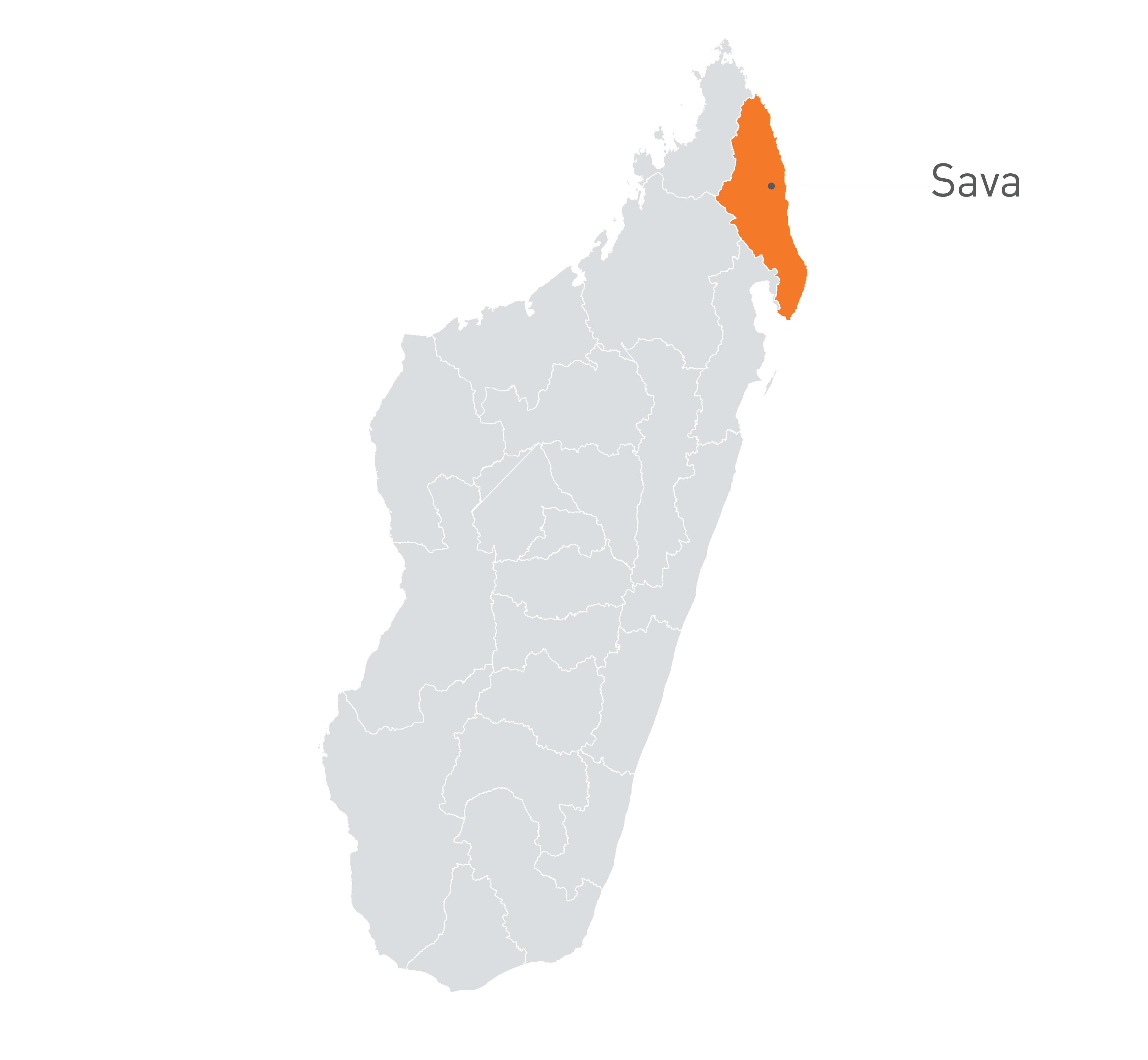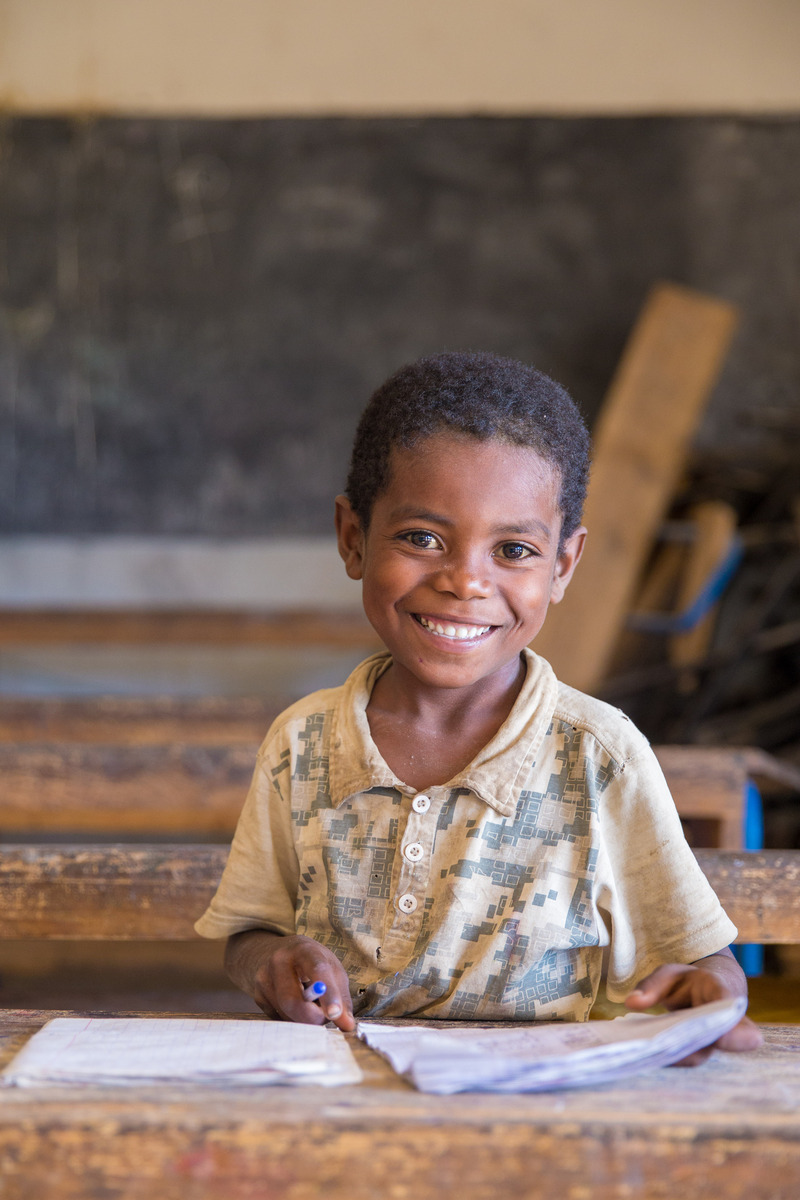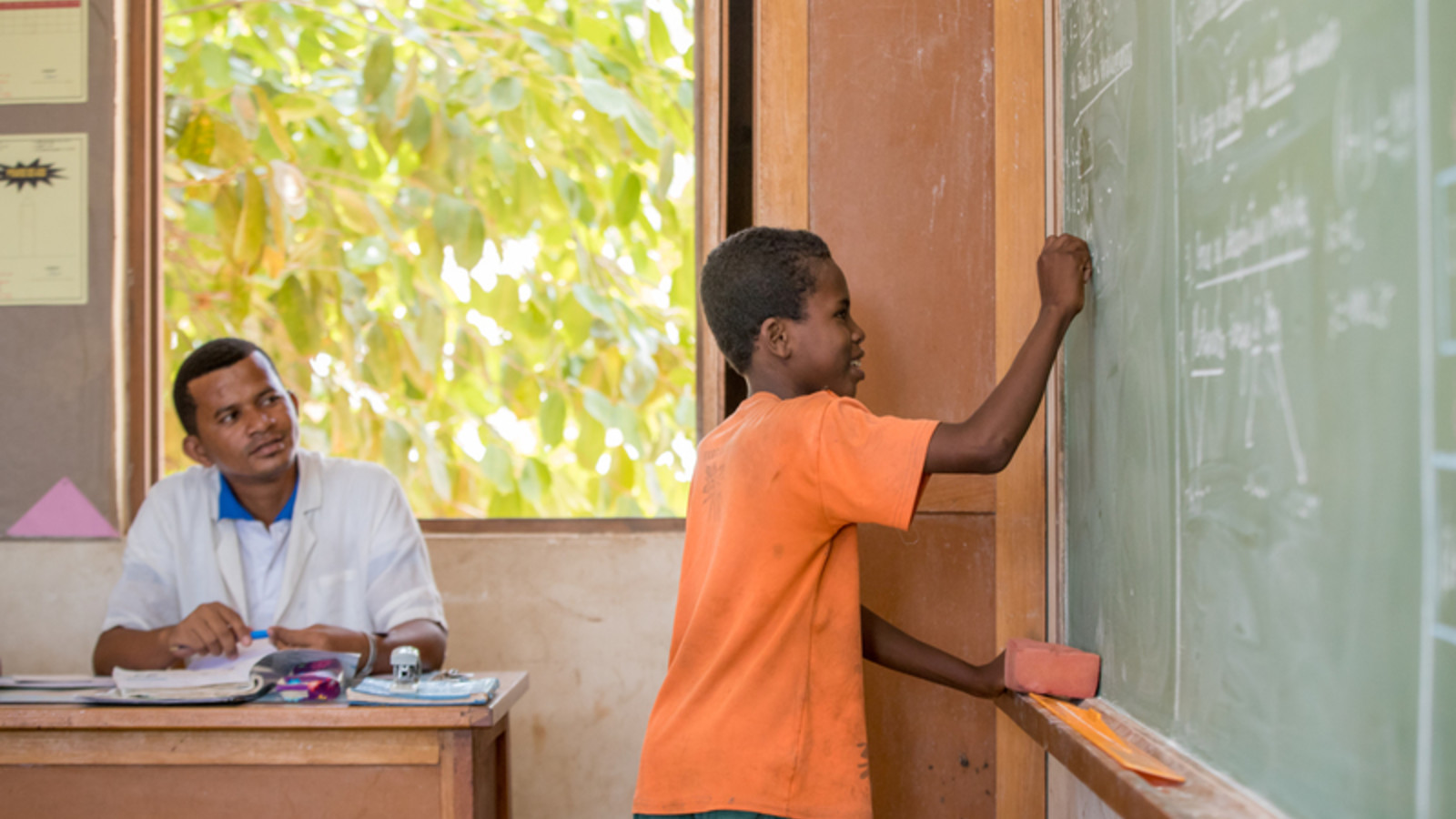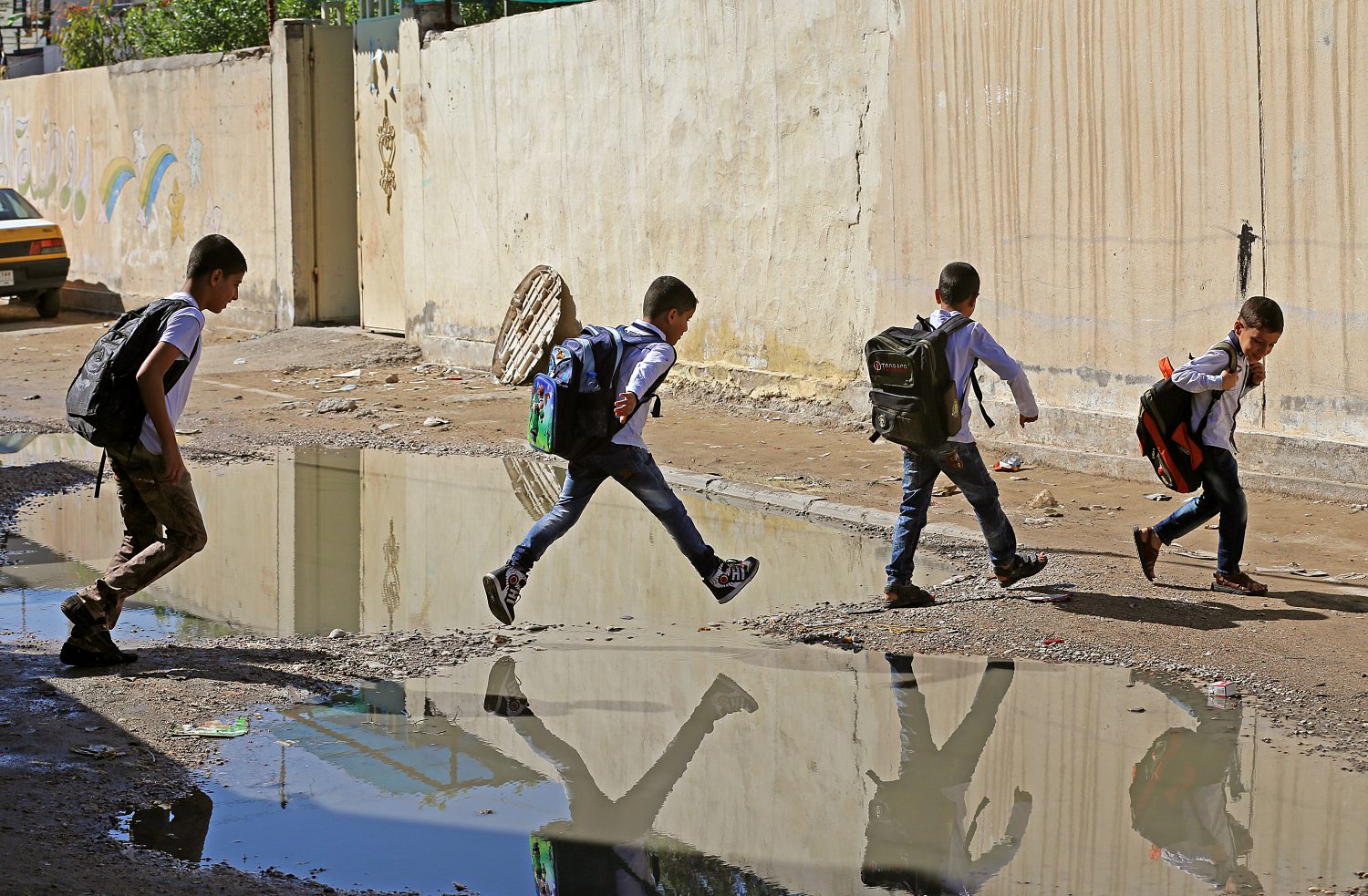ECW in Madagascar
In March 2017, the powerful Cyclone Enawo devastated Madagascar, destroying entire communities and essential infrastructure across the country, particularly in the Sava region. The destruction of schools left over 100,000 students without a safe space to learn, exposing them to risks and jeopardizing their futures. To address this urgent crisis, Education Cannot Wait (ECW) grantees rehabilitated classrooms, provided essential supplies for schools and increased disaster resilience to prepare for future events. The ECW-funded activities associated with this First Emergency Response (FER) ended in 2019.

Investments
Financial Information
National Counterparts
Ministry of Education (Regional Directorate – DREN)
Results
Programme Info

The education system was severely hit, with 4,000 schools damaged or fully destroyed. Over 100,000 children were left without a safe space to learn. Being out of the classroom for extended periods of time deprives children of stability and exposes them, particularly girls, to risks such as gender-based violence. It also makes them unlikely to return to the classroom, creating lasting impacts on their futures.
ECW provided funding for partners to address the urgent education needs and ensure continuity of learning for girls and boys impacted by the cyclone. Specifically, the rehabilitation of schools to ensure safe learning environments; the provision of essential resources for classrooms; and fostered collaborations with local and national groups to build resilience for communities in preparation for future disasters.
The FER response ended in 2018. ECW currently has no active investments in Madagascar
Programme Components
- Improving access to safe learning environments. To enhance learning spaces, classrooms were rehabilitated and provided with desks, blackboards and chairs for students and teachers.
- Providing supplies and materials in vulnerable areas. Replacement supplies of essential materials for children were ordered to ensure a more rapid response to future disasters. At a regional level, the rehabilitation and/or construction of warehouses were implemented to ensure that stock can be pre-positioned in at-risk areas to provide resources in case of future emergencies.
- Strengthening coordination and communication to increase resilience to natural hazards. The Ministry of Education, education planners, and disaster risk reduction (DRR) focal points were trained to strengthen disaster prevention, preparedness and response techniques. These training sessions provided tools to improve communication and included a coordinated emergency response strategy.
For more information on ECW's work in Madagascar, please contact Graham Lang (glang@un-ecw.org).



